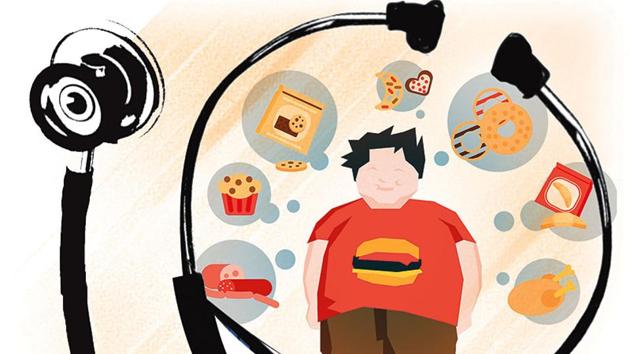[ad_1]
We now live in an obesogenic environment — one where making health-promoting choices takes conscious effort. Ultra-processed foods (UPFs), driven by ease and convenience, are steadily replacing warm, home-cooked meals and shared family dining.

The hidden dangers in your pantry
In an interview with HT Lifestyle, Dr Varsha Shah, Lifestyle Physician and Pediatrician at SBKS Medical Institute and Research Centre in Sumandeep Vidyapeeth, shared, “Today’s Gen Alpha is more likely to prepare instant noodles, pasta, or ready-to-cook meals than appreciate the richness of traditional Indian, wholesome food. There is a perception that legumes and dals are ‘boring’ or ‘not tasty,’ further distancing us from nutrient-dense staples. Alongside these dietary shifts, sedentary habits have become the norm.”

She added, “Physical activity is no longer woven into our day-to-day lives. Just walking 10,000 steps now requires intention. Sleep is often sacrificed to late-night scrolling, as gadgets hijack our circadian rhythm.”
The shocking truth about GLP-1 drugs and what they are NOT fixing
According to Dr Varsha Shah, this mix of poor dietary habits, sedentary routines, disrupted sleep and unmanaged stress creates the perfect storm for obesity and lifestyle-related diseases — starting from early childhood. The health expert said, “While medications like GLP-1 may offer temporary fixes, the real solution lies in reshaping our environment and habits. Moreover, these medications do not address the underlying causes of obesity, such as poor diet, inactivity and chronic stress.”

Dr Varsha Shah advised, “Building healthier habits like exercising regularly, getting enough sleep and replacing fast, ultra-processed foods with nutritious, home-cooked meals is a gradual yet effective way to manage weight in a safer and more sustainable manner.”
Note to readers: This article is for informational purposes only and not a substitute for professional medical advice. Always seek the advice of your doctor with any questions about a medical condition.
[ad_2]
Source link


